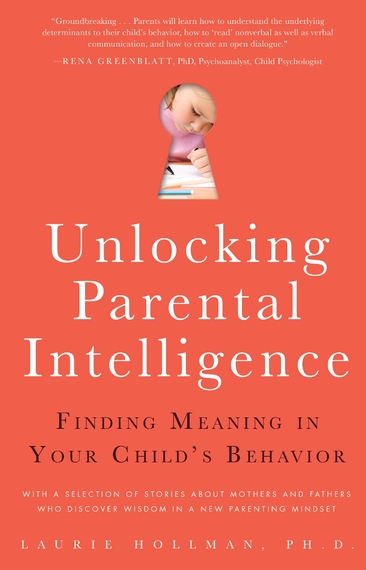
Toddlers and preschoolers are gaining a new sense of autonomy with their growing mobility and language development. They look to move around freely, say all the new words they hear even if they don't know what they mean, and absorb all the new learning opportunities put in front of them or simply around them. However, if they appear exhausted with all their activities, it's important to know what parents can do to limit their tasks to remedy what may be worrying them. Mental exhaustion is just as common as physical exhaustion.
Ten Tips for Parenting Toddlers and Preschoolers
1.Help them learn how to follow directions by giving just one instruction at a time. Slowly increase to two or three so they are always successful. If you have an exhausted child, perhaps you are giving them too many directions at once and they are overwhelmed. Curtail the instructions to just one and show you are grateful.
2.Praise them for their successes with detail. Not just "Great Job" but "You sure put all those blocks in the bin. Great and thanks." Then they know exactly what to repeat the next time. Exhausted children thrive with detailed praise, not just general comments that slide right by them.
3.Avoid using the words "NO!" and "DON'T" it shakes them up rather than give them a sense of what to do. Instead say, "Please do this now" or "Try it this way." It isn't judgmental and emphasizes what to do, not what not to do!
4.Teaching little ones how to follow a sequence is an important skill. This relieves exhaustion because they know what to expect. Predictability is a key element for the exhausted child. For example, say, "First, you put the blocks in a pile. Then you sort them from little to big in a row." Or, (if they know colors) "put all the yellow, blue, red, etc. blocks together." "Next, you put them on the shelf." Praise each task and repeat the instructions as needed. If you're child seems glazed over because of exhaustion, stop the task and offer affection or maybe read a book. Don't press learning sequences at that time.
5.Very early on you can teach letters if and only if your child is interested. Reading "readiness" is essential or you will exhaust a child that isn't capable at the time despite your excitement. If you proceed, do so slowly and always make it fun to reduce mental fatigue.
Begin with capitals and begin with the first letter of their name. Put the letter on the fridge, on their door, on their closet, etc. Always teach the letter before the sound. Once they understand R is for Richard or E is for Eddie, then say R is for "r-r-r-r" amd E is for "e-e-e-e." Slowly build on capital letters for fruit or every day items with their beginning letters.B is for banana." What else starts with B?
6.Stemming exhaustion is easily done by reading to your child. Read to your child every day. Don't save it only for bedtime. Make it part of any calm down time needed. Toddlers love picture books that don't even have words. Preschoolers begin to memorize easy short books that are read over and over to them. Slowly introduce books with words. Avoid screens at first. Kids like tangible pages they can turn.
7.If your child is mentally exhausted, it may be because they fear the loss of you. Play "hide and seek." Toddlers and preschoolers are beginning to understand that when you are out of sight, you are not gone forever. They test this out. You see toddlers toddle outside of sight and then come right back. They are testing out "here" and "gone." Preschoolers understand this better or they couldn't spend a few hours at school, but they are still working on believing it. Hide and seek is a game that practices this essential learning. It builds a sense of safety, security, and trust. Trust reduces fatigue.
8.Play "chase me." This is similar to hide and seek because the child is learning to lose and find you. Then reverse it and chase them. The giggles of delight not only reflect the joy in large motor coordination but in knowing you want them and will always find them if they are lost, two essential fears that when resolved build lasting trust.
9.You learn a lot about what exhausts your child by learning what is on his or her mind. Have short conversations with your child. Let them learn that you care about what they have to say. Even if you know what they are getting at, let them persist at their own pace to tell you completely. Then help them expand on their words by you saying, "Tell me a little bit more." It's a great way to increase vocabulary and understand how your child thinks and what is on his or her mind.
10.Respect your child's need for closeness and distance. Some kids are natural coddlers. Others turn away a bit, not because they don't love you, but because they need more space. If your child isn't a snuggler, do not take it personally. Understand what he or she is comfortable with and needs and give that kind of affection. It goes a long way for building trust and relieving exhaustion.
11. You don't have to go crazy spending money on lots of educational toys. Too many toys can overwhelm a child and give way to exhaustion. Everything is a toy to learn from for a toddler or preschooler. Making believe with pots and pans and a spoon, mixing real batter for a cake, pouring cereal into a bowl (oh, well, a mess!) are all learning experiences without a toy in sight.
12.On the other hand, essential toys are the simple ones like shapes in shape sorters, big puzzles, fat crayons and paper, child proof scissors, paste and glue, blocks or toy cars and such to put into categories. These all build small motor skills. The key to preventing exhaustion, is doing these activities with your child and stopping when they seem to lose interest. Be careful not to overwhelm them with your desires to have them learn quickly. When they are not tired, they will learn more easily.
The essential ingredients in all you do with your toddler is to help them feel wanted, give them the feeling they belong, that they are safe and secure, and ultimately that they can trust you. Behind all of these essentials of course is your love. Love doesn't cure all, but it goes a long way for the exhausted child!

Laurie Hollman, Ph.D., is a psychoanalyst with a recent book, Unlocking Parental Intelligence: Finding Meaning in Your Child's Behavior, found on Amazon, Barnes & Noble, Familius, and wherever books are sold.